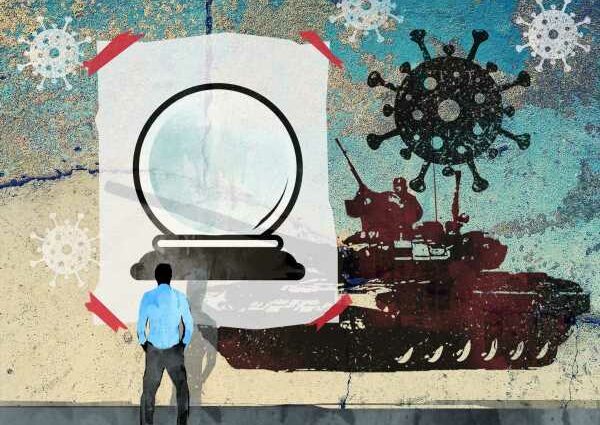Conventional wisdom is that when the US sneezes, emerging markets like India catch a cold.
And yet the Indian stock market went up last year, points out Debashish Basu.
I remember listening to a big shot at one of India’s largest corporate houses about India’s economic prospects in 2008; this was at the fag end of December 2007.
With a ringside view of economic trends, flow of funds and business sentiment, he was extremely positive about 2008, knowing that tens of billion dollars were about to flow into infrastructure, real estate and other businesses.
India will not be able to absorb the torrent of money that is headed our way, he said, especially from the Gulf countries, since oil prices had been high and petrodollars were looking for an investment destination.
India was then seen as one of the most attractive investment destinations on earth.
This corporate honcho was honestly sharing what he was witnessing from very close quarters.
We know what happened next. By the third week of January, a global market decline was underway; but it was just the trailer.
Throughout 2008, one crisis after another hit the US and morphed into what is known as a Global Financial Crisis, which affected all markets and economies around the world.
A couple of countries were literally bankrupt.
Indian indices were down almost 60 per cent for the year, recording one the biggest crashes in living memory.
The episode assumes significance because it is that time of the year when investment strategists, fund managers, and sundry opinion makers pull out their crystal balls and gaze into them to let us know of their forecast for the next year.
My real-life anecdote and innumerable others forecasts like that one prove this yearly ritual is a farce.
Every year major Wall Street institutions put out a year-end target for the S&P500 index.
Last year, Wells Fargo set a target 5,200, Goldman Sachs 5,100, and JP Morgan 5,050 (yes, they herd together even while forecasting).
The index closed the year at 3,839.
The apologists will ask, who would have thought that Russia would invade Ukraine? That is precisely the point.
The crystal ball can never anticipate all big events that move the market, and impact economies and countries. And yet, we have an insatiable desire to lap up forecasts.
We can’t predict the effect either
The outcome of such forecasts is far worse than the toss of a coin.
This is not merely because of unknown causes or unanticipated global factors such as the invasion of Ukraine, which happened just a few weeks after Wall Street had made its grand annual forecasts.
But what really makes a mess of forecasts is a second reason — the effect or impact of such unanticipated events.
The fact is, even if we can anticipate such major happenings, we can still be wrong in predicting their effect or outcome.
This is difficult to understand because it is counter-intuitive.
Take the case of what happened in 2022.
Imagine someone asking a market expert to predict the effect of the following on the Indian stock market: Russia invades Ukraine, oil prices shoot up; the US kicks Russia out of the global settlement system and freezes the assets of Russian billionaires; Russia stops supplying gas to Europe; US inflation hits a record 8 per cent, causing the Federal Reserve to hike interest rates from 0.25 per cent to 4.50 per cent in nine months; and China bumbles badly in controlling rapidly rising cases of COVID-19 in the country.
Rising inflation and escalating interest rates together act as a cold wet blanket and slow down growth rates worldwide.
Also, the conventional wisdom is that when the US sneezes emerging markets such as India will catch a cold.
Logically, in this set of circumstances, everyone would have predicted a market crash like 2008.
And yet the Indian stock market went up last year.
What about 2020? If anyone had told you in March 2020 a pandemic would suddenly bring the whole world to a standstill, leading to severe global lockdowns, high unemployment, business closures, a migrant labour crisis, a complete shutdown in the travel and entertainment businesses etc. what would you have predicted for the year?
Your forecast would have been an uncontrolled rise in bad debts, a severe contraction in profits and a huge market crash.
It didn’t happen. Not only did nobody anticipate the cause (or calamity), but once the cause was known, no one could anticipate the effect.
Here is another piece of evidence that we cannot predict the effects even if we know the cause.
A study by David Cutler, James Poterba, and Lawrence Summers in March 1988 titled What Moves Stock Prices concluded that even if investors knew tomorrow’s news today, it would not be very useful.
This is because big moves have happened on ‘no news’ days and many times no move happened on ‘news days’.
Why are even experts so bad at predicting effects, not just causes?
Because economies and markets are not static systems following physical rules; academics describe as complex, emerging, adaptive systems.
The impact of any major external event causes millions of people to react and interact in a chain-like process known as a feedback loop.
The effects of such continuous interaction to ever-changing external factors are obviously impossible for a human mind to grasp and predict.
So, the next time you come across an apology for a wrong forecast like ‘Who would have predicted…’, remember that even if we had predicted the cause, the forecast for the effect would have probably been wrong.
Debashish Basu is editor, moneylife.in
Source: Read Full Article

